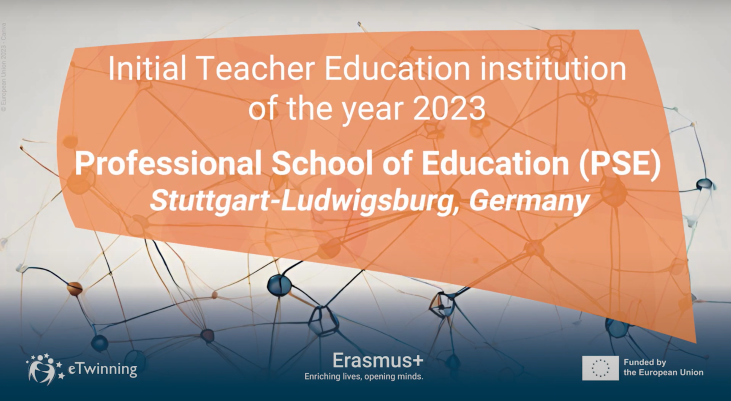
A course for the ages: project-based learning with eTwinning/Erasmus+ for interculturality

Everyone agrees that online transnational projects in eTwinning bring classroom learning to life, engaging pupils in ways that textbooks and exercises can’t.
However, teachers must know how to find a partner, how to plan a project, how to access the European School Education Platform and set up a TwinSpace, how to document a project and how to submit the project for evaluation in the context of the quality labels.
Imagine, then, a university course for student teachers that teaches them all about eTwinning, Erasmus+ and all the amazing resources available from the European School Education Platform during their studies! Imagine a university course in which student teachers collaborate with other student teachers from all over Europe on an eTwinning project, learn how to plan it, set it up in a TwinSpace, document it and reflect on the experience, challenges and achievements, all before they are even teachers!
That’s what my course, ‘Project-based learning with eTwinning & Erasmus+ for interculturality’ does! The 13-week course is worth 3-6 ECTS. Each week covers a different topic related to eTwinning, with six weeks of the course reserved for the project.
According to student teacher Marie-Luise Munz, ‘I learned so much about eTwinning and the European School Education Platform during my studies. Now that I am in the practical phase of teaching, there is no way I would have time to learn about eTwinning. I love that I can start eTwinning projects already because of this eTwinning course; I already have a good network of student teachers in Italy, Spain and France that I can contact when I want to run projects.’
After teaching this course for six semesters now, I truly believe student teachers must learn about eTwinning and the tremendous range of free European Union resources and connections during their studies before they become teachers. Once they are teachers, they come to their new schools as motivated and enthusiastic experienced eTwinners, ready to start projects.
In the blended-learning course, guest speakers such as eTwinning moderators and ITE ambassadors from Germany and Europe give motivating talks to the student teachers about their experiences. The course meets via Zoom once a week for 90 minutes. All the classwork and learning activities take place via a Moodle classroom, so students don’t travel anywhere.
In April 2024, the course will have its first international cohort hosted by the University of Stuttgart. Over 40 student teachers from all over Europe will take the course together, allowing project partners to collaborate while earning university credits during their studies.
We were very excited to win the eTwinning for future teachers – European Award for Initial Teacher Education and want to share our course with other ITE institutions. Access an OER syllabus for the course here.
For more information about the course, taking part in projects, registering for the October 2024 Stuttgart University course or becoming a guest speaker, please contact me, Professor Richard Powers at richard.powers@ilw.uni-stuttgart.de
Link for syllabus: https://drive.google.com/file/d/1mi2qveVC3AZf33YJlB2P9AlO9-vrGREC/view?usp=drive_link
Additional information
-
Education type:Early Childhood Education and CareSchool EducationVocational Education and Training
-
Target audience:TeacherStudent TeacherHead Teacher / PrincipalTeacher Educator
-
Target audience ISCED:Early childhood education (ISCED 0)Primary education (ISCED 1)Lower secondary education (ISCED 2)Upper secondary education (ISCED 3)
